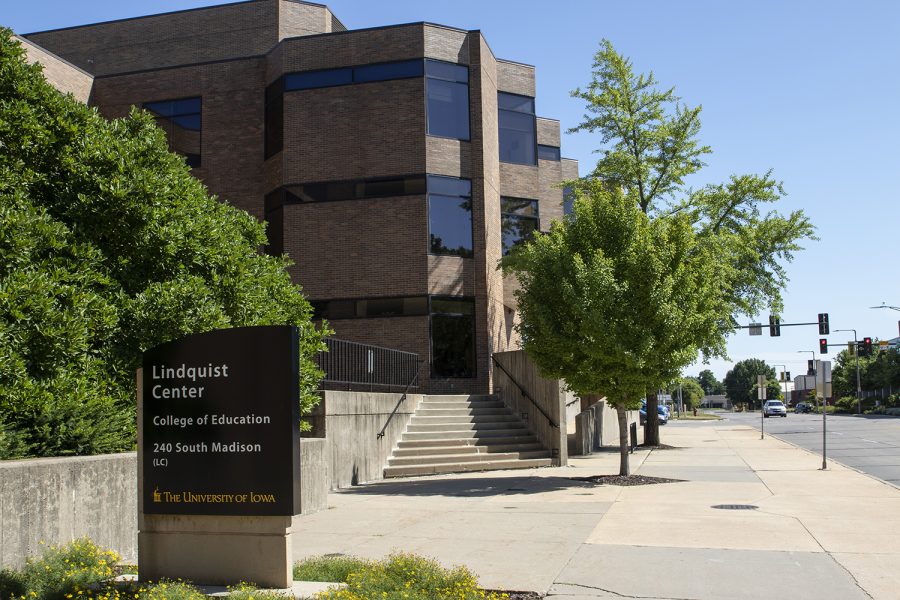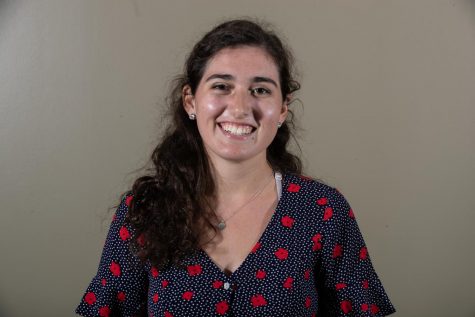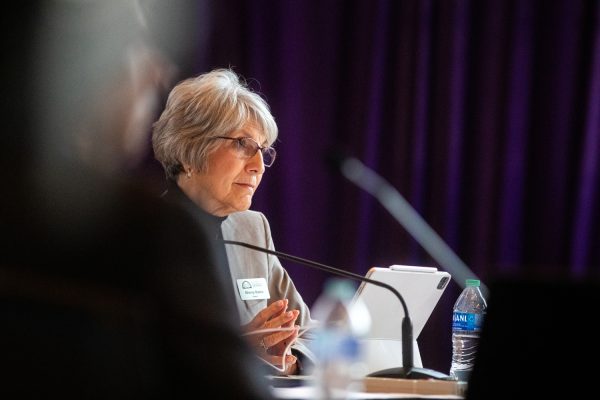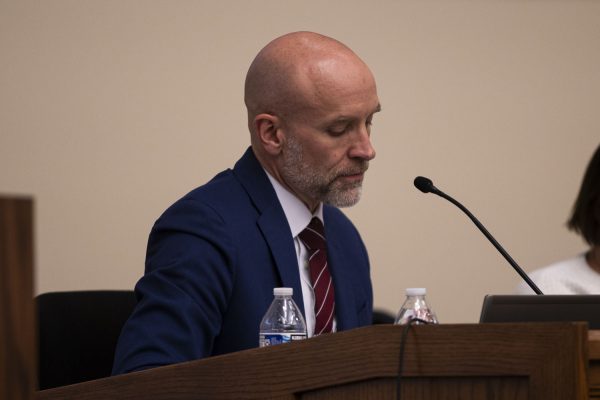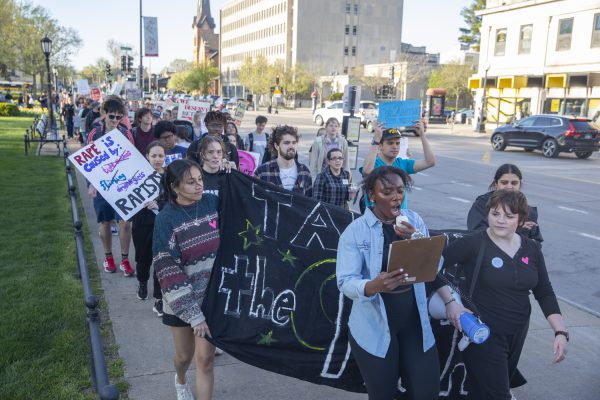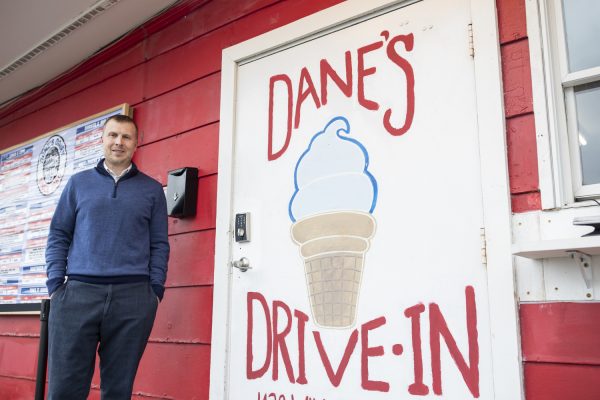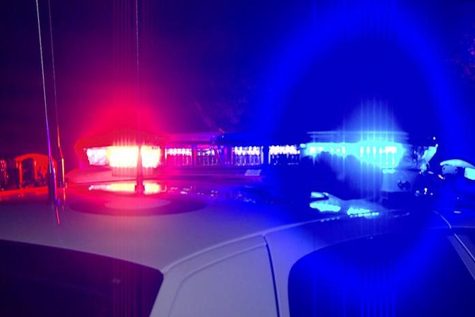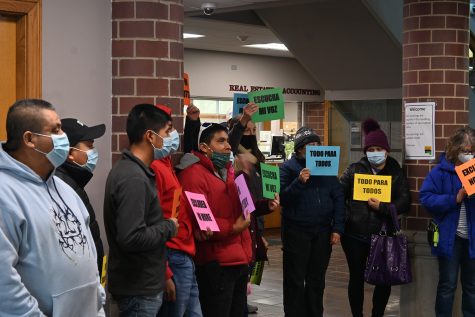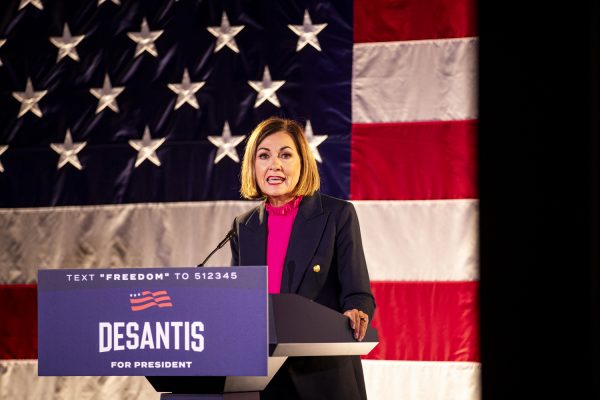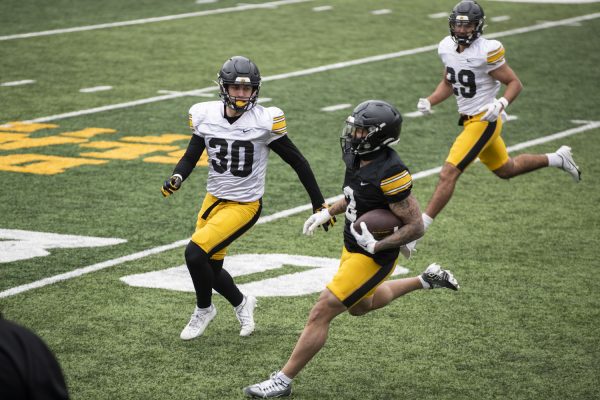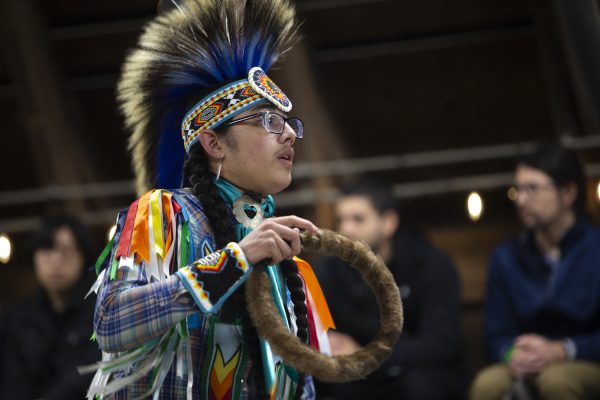Des Moines Area Community College partners with the UI to increase diversity
Along with funding from the National Science Foundation, the UI has partnered with the Des Moines Area Community College to increase diversity among mathematics teachers, primarily within high-need school districts.
The Lindquist Center is seen on July 30, 2019.
August 27, 2019
The University of Iowa and the Des Moines Area Community College are partnering to provide a scholarship to 25 aspiring students from underrepresented backgrounds to strengthen diversity within secondary educational math departments.
The Noyce scholarship, funded by a $1.23 million National Science Foundation grant, provides students from underrepresented backgrounds the opportunity to become STEM teachers. In exchange for this scholarship, each recipient of the grant must work in a high-need school district as a math teacher for two years per year of funding received.
Ted Neal, an associate professor in the College of Education, has seen how the Noyce grant has shaped the lives of students across campus.
“Education programs across the nation are seeing a decline in enrollment as the years move on, but at Iowa our numbers have remained practically the same,” Neal said. “Noyce is a big part of that.”
Other universities also offer programs to diversify their programs. Iowa State University’s math department website advertises Enhancing Diversity in Graduate Education to promote the ability of women to compete in different programs. In addition, University of Northern Iowa’s financial aid provides scholarships to undergraduate students from underrepresented groups.
Assistant Professor Danny Hong, the principal investigator of the partnership, echoed the call to diversify the math field. He said the field is largely dominated by white male or female students.
“If we can convince people who might not view teaching as their future career to come to the University of Iowa, I am hoping I can continue to build our diversity in later years,” he said.
Jamaal Young, co-investigator and associate professor in the College of Education, credits the founding of this specific program to Hong. He acknowledged his colleague’s efforts and past experience with bridging the pipeline with area community colleges and diversifying STEM at the university.
“I think the thing that is so unique about our program is that we take a high initiative to make sure that our students go into high-need districts to teach and remain there for a probationary period,” Young said. “I think the factor that gets lost so much is in retention. If you retain more faculty and students of color, that will in turn help you recruit more students and faculty of color. Retention is recruitment.”
Young has also brought forth a new form of teaching to the program. He promotes a Japanese teaching method in which a group of teachers will develop a lesson, one teacher teaches the lesson and the others observe, and they all meet after the lesson and debrief.
“I definitely think that we want to try to have success with our program, and then hopefully have others within the state of Iowa follow suit,” he said. “I think it is something that would benefit the state of Iowa as a whole, because it opens up the door to a higher level of education to a larger pool of students.”



